2023 Presenters & Agenda
MONDAY, JUNE 5
7:45 a.m. – Registration begins at the Burge Union (1565 Irving Hill Rd, Lawrence, KS 66045).
8:00 a.m. – Doors open to the Burge Union conference room. Coffee, tea and pastries will be served.
8:30 a.m. – Preliminary remarks.
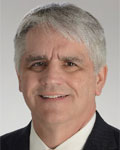 8:45 to 10:00 a.m. - Dr. Roy Jensen, vice-chancellor and director of the KU Cancer Center, will speak on “How the Centers Program at the National Cancer Institute has Saved Millions of Lives Over the Last 30 Years.” The cancer center is currently one of 53 NCI-designated comprehensive cancer centers in the nation.
8:45 to 10:00 a.m. - Dr. Roy Jensen, vice-chancellor and director of the KU Cancer Center, will speak on “How the Centers Program at the National Cancer Institute has Saved Millions of Lives Over the Last 30 Years.” The cancer center is currently one of 53 NCI-designated comprehensive cancer centers in the nation.
Dr. Jensen was appointed director of Cancer Center in 2004. Prior to that, he was a member of the Vanderbilt-Ingram Cancer Center and a faculty member in pathology, cell biology, and cancer biology for 13 years. He graduated from the Vanderbilt University School of Medicine in 1984. Following his clinical training, he accepted a postdoctoral fellowship at the National Cancer Institute. He has authored more than 150 scientific publications and has lectured widely on the clinical and molecular aspects of breast cancer pathology.
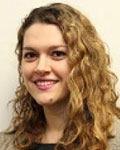 10:20 to 11:35 a.m. - Associate Prof. Ani Kokobobo, chair of Slavic and Eurasian Languages and Literature, will speak on “Russian Literature on Russia’s Colonial Mission.” I talk about Tolstoy’s last novella Hadji Murat and consider how that novella captures Russia’s colonial mission in the context of the Caucasus. I consider representations of violence and force and the sentiments that emerge among the local population as a result. I draw parallels to the contemporary Russian aggression in Ukraine.
10:20 to 11:35 a.m. - Associate Prof. Ani Kokobobo, chair of Slavic and Eurasian Languages and Literature, will speak on “Russian Literature on Russia’s Colonial Mission.” I talk about Tolstoy’s last novella Hadji Murat and consider how that novella captures Russia’s colonial mission in the context of the Caucasus. I consider representations of violence and force and the sentiments that emerge among the local population as a result. I draw parallels to the contemporary Russian aggression in Ukraine.
Prof. Kokobobo received her BA from Dartmouth (2005) and a Ph.D. from Columbia University (2011). She is currently the KU Senate President. She has written four books and more than 30 articles on Russian literature and culture, and her public writings have appeared in the Chronicle of Higher Education and the Washington Post.
Noon to 1:00 p.m. - Pizza lunch at the Burge Union.
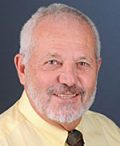 1:05 to 2:35 p.m. - Prof. John Younger, former KU director of Jewish studies and an extensive researcher on the Aegean Bronze Age, will lecture on ancient Greek “mystery buildings.”
1:05 to 2:35 p.m. - Prof. John Younger, former KU director of Jewish studies and an extensive researcher on the Aegean Bronze Age, will lecture on ancient Greek “mystery buildings.”
Prof. Younger, now retired, came to KU in 2002 as a professor of classics from Duke University, where he had taught for 27 years. He has also taught in the KU departments of Humanities, Museum Studies, and Women, Gender, and Sexuality Studies. He holds a BA degree in history from Stanford University and MA and Ph.D. degrees in classics from the University of Cincinnati. He has published numerous books, chapters and articles on various Bronze Age and Classical topics, including an entry in the encyclopedia Sex in the Ancient World, A-Z.
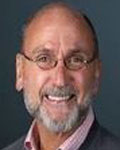 3:00 to 4:30 p.m. - Jim Peters, director emeritus of the Osher Lifelong Learning Institute at KU, will lecture on “Eleanor Roosevelt: Her Private Struggles and Public Triumphs.” Eleanor Roosevelt overcame an affluent-but-unhappy childhood when both parents and a brother died before she was ten. Sent to school in London, she returned to marry Franklin Roosevelt, a marriage that combined a complicated personal life with an extraordinarily successful political role as FDR’s surrogate, First Lady, civil rights activist, and international diplomat.
3:00 to 4:30 p.m. - Jim Peters, director emeritus of the Osher Lifelong Learning Institute at KU, will lecture on “Eleanor Roosevelt: Her Private Struggles and Public Triumphs.” Eleanor Roosevelt overcame an affluent-but-unhappy childhood when both parents and a brother died before she was ten. Sent to school in London, she returned to marry Franklin Roosevelt, a marriage that combined a complicated personal life with an extraordinarily successful political role as FDR’s surrogate, First Lady, civil rights activist, and international diplomat.
Prof. Peters is a graduate of Southern Illinois University at Carbondale and the New England School of Law. He teaches Osher courses on John Brown, the Underground Railroad, Arlington National Cemetery, Harry Truman, Teddy Roosevelt, and George Washington Carver, among others.
TUESDAY, JUNE 6
8:00 a.m. - Doors open to the Burge Union conference room. Coffee, tea and pastries will be served.
8:30 a.m. - Preliminary remarks.
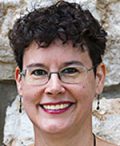 8:45 to 10:00 a.m. - Prof. Lisa McClendon, coordinator of the Bremner Editing Center at the School of Journalism and making her fourth Mini College appearance, will talk about “Why English Spelling is Such a Train Wreck.” We’ll look at the origin and timing of words, how printing affected spelling, and other fun stuff.
8:45 to 10:00 a.m. - Prof. Lisa McClendon, coordinator of the Bremner Editing Center at the School of Journalism and making her fourth Mini College appearance, will talk about “Why English Spelling is Such a Train Wreck.” We’ll look at the origin and timing of words, how printing affected spelling, and other fun stuff.
Dr. McLendon is the William Allen White professor of journalism. She joined the KU journalism school as the coordinator of the Bremner Editing Center in 2012, after 12 years as a newspaper copy editor. McLendon, who has a doctorate in Slavic linguistics, is the author of “The Perfect English Grammar Workbook,” published in 2017. In her free time, she enjoys books, quilting and British detective shows.
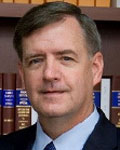 10:20 to 11:30 a.m. - Dr. Robert Moser, recently retired dean of KU’s Salina School of Medicine, will discuss that school’s efforts to place more physicians in rural Kansas. Dr. Moser stepped down to devote his efforts to the recently created Kansas Center for Rural Health on the Salina campus. The Center is a multi-disciplinary effort to address the rural health disparities in Kansas. One of the drivers of poor health status and outcomes is the lack of access to medical care. The Center will support ongoing efforts to train more providers for rural Kansas and help develop or evaluate new care delivery models.
10:20 to 11:30 a.m. - Dr. Robert Moser, recently retired dean of KU’s Salina School of Medicine, will discuss that school’s efforts to place more physicians in rural Kansas. Dr. Moser stepped down to devote his efforts to the recently created Kansas Center for Rural Health on the Salina campus. The Center is a multi-disciplinary effort to address the rural health disparities in Kansas. One of the drivers of poor health status and outcomes is the lack of access to medical care. The Center will support ongoing efforts to train more providers for rural Kansas and help develop or evaluate new care delivery models.
11:35 to 12:55 p.m. - Lunch on your own.
1:15 to 2:15 p.m. - Tours of the Dole Institute of Politics, the Natural History Museum and the Spencer Museum of Art.
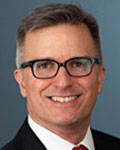 3:00 to 4:30 p.m. - Dr. Michael Vitevitch, a professor in the Psychology Department, will lecture on “Six Degrees of Separation: How Everything is Connected.” Although breaking things down into smaller and smaller parts has led to many advances in science, this approach limits our ability to see how the parts fit and work together to do something. Learn about an emerging new field — the science of networks — to see how parts are connected and how the way things are connected influences what the system can do. We’ll explore how networks are used to study cognitive, neurological, biological and social systems.
3:00 to 4:30 p.m. - Dr. Michael Vitevitch, a professor in the Psychology Department, will lecture on “Six Degrees of Separation: How Everything is Connected.” Although breaking things down into smaller and smaller parts has led to many advances in science, this approach limits our ability to see how the parts fit and work together to do something. Learn about an emerging new field — the science of networks — to see how parts are connected and how the way things are connected influences what the system can do. We’ll explore how networks are used to study cognitive, neurological, biological and social systems.
Prof. Vitevitch’s research applies the mathematical tools of network science to language, and also examines various types of speech errors (including the tip of the tongue state) and auditory illusions (like the speech to song illusion).
WEDNESDAY, JUNE 7
8:00 a.m. - Doors open to the Burge Union conference room. Coffee, tea and pastries will be served.
8:30 a.m. - Preliminary remarks.
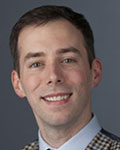 8:45 to 10:00 a.m. - Dr. Justin Stachnik, of KU’s Geography and Atmospheric Science Department, will lecture on “Climate Change, Tropical Meteorology and Hurricanes.” This presentation summarizes the mechanisms and impacts of global climate change. Trends in the observed weather for the last 100 years will be discussed in addition to potential changes by the year 2100 using climate models. Specifically, Dr. Stachnik will highlight ongoing research related to tropical climate change, including tropical expansion and other impacts on clouds and precipitation. The talk will conclude with an overview of changes in the frequency and intensity of tropical storms and hurricanes as an example of local impacts that may result from global climate change.
8:45 to 10:00 a.m. - Dr. Justin Stachnik, of KU’s Geography and Atmospheric Science Department, will lecture on “Climate Change, Tropical Meteorology and Hurricanes.” This presentation summarizes the mechanisms and impacts of global climate change. Trends in the observed weather for the last 100 years will be discussed in addition to potential changes by the year 2100 using climate models. Specifically, Dr. Stachnik will highlight ongoing research related to tropical climate change, including tropical expansion and other impacts on clouds and precipitation. The talk will conclude with an overview of changes in the frequency and intensity of tropical storms and hurricanes as an example of local impacts that may result from global climate change.
Dr. Stachnik is an atmospheric scientist with a broad interest in clouds, climate and precipitation. His recent work has focused on tropical meteorology, and he is an expert is using satellite observations and other datasets to study clouds and rainfall. Prior to coming to KU, he completed a joint post-doctorate for the NASA Jet Propulsion Laboratory and UCLA. Dr. Stachnik also has an interest in forecasting, given his years working for the National Weather Service in Chicago.
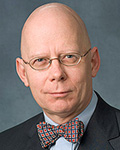 10:20 to 11:35 a.m. - Prof. Robert C. (Robin) Rowland, who has spoken at nearly all of our previous gatherings, will lecture on “Principles Defining Effective and Ethical Advocacy: Why the Conventional Wisdom about Effective Communication is Almost Totally Wrong.” Prof. Rowland will explain that much of the conventional wisdom about effective and ethical advocacy fails to explain why some political figures (Ronald Reagan and Barack Obama are good examples) were so consistently successful in motivating the public, while many others failed to do so. He will identify the most basic principles for persuading an audience, principles that can be applied at all levels of American democracy, from presidential campaigns to local activist campaigns.
10:20 to 11:35 a.m. - Prof. Robert C. (Robin) Rowland, who has spoken at nearly all of our previous gatherings, will lecture on “Principles Defining Effective and Ethical Advocacy: Why the Conventional Wisdom about Effective Communication is Almost Totally Wrong.” Prof. Rowland will explain that much of the conventional wisdom about effective and ethical advocacy fails to explain why some political figures (Ronald Reagan and Barack Obama are good examples) were so consistently successful in motivating the public, while many others failed to do so. He will identify the most basic principles for persuading an audience, principles that can be applied at all levels of American democracy, from presidential campaigns to local activist campaigns.
Dr. Rowland teaches rhetoric and argumentation at KU. He has received four university-wide awards for teaching and a national teaching award from the National Communication Association. Dr. Rowland has won several national awards for his research and published four University Press of Kansas books, one of which won the Kohrs-Campbell Prize in rhetorical criticism. Rowland presented the keynote on rhetoric at the Reagan Centennial. His most recent book, The Rhetoric of Donald Trump, was published in spring 2021. As a KU student in 1976, Dr. Rowland and his debate colleague won the National Debate Tournament.
11:35 a.m. to 1:00 p.m. - Lunch on your own.
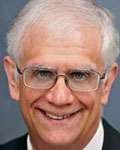 1:05 to 2:35 p.m. - Dr. Paul Laird, who gave a dynamic lecture on the life and music of George Gershwin at last year’s Mini College, will entertain us with a presentation on Leonard Bernstein.
1:05 to 2:35 p.m. - Dr. Paul Laird, who gave a dynamic lecture on the life and music of George Gershwin at last year’s Mini College, will entertain us with a presentation on Leonard Bernstein.
Dr. Laird holds two degrees from Ohio State University and a Ph.D. in music from the University of North Carolina at Chapel Hill. He has taught at KU for nearly 30 years and offered many classes through the Osher Institute for Lifelong Learning since its inception at KU. Laird is a leading scholar on the American musical theater and has published widely in the field, his latest book being a study of the orchestration of West Side Story and Gypsy.
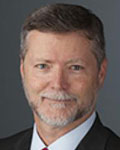 3:00 to 4:30 p.m. - Dr. Richard Hale, chair of aerospace engineering in the School of Engineering, will discuss “The Growing Applications of Unmanned Aircraft.” While military and defense applications might be what the public thinks of most often, we will also explore uses in agriculture, civil infrastructure, environmental remote sensing, last-mile product delivery, and as technology precursors to advanced air mobility concepts.
3:00 to 4:30 p.m. - Dr. Richard Hale, chair of aerospace engineering in the School of Engineering, will discuss “The Growing Applications of Unmanned Aircraft.” While military and defense applications might be what the public thinks of most often, we will also explore uses in agriculture, civil infrastructure, environmental remote sensing, last-mile product delivery, and as technology precursors to advanced air mobility concepts.
Dr. Hale has been with the University of Kansas since 1998. His primary expertise and research focus on composite aerospace structure design, analysis, fabrication and field testing in support of aerospace applications and remote sensing. His predominant applied research involves the development of sensors and airborne platforms for manned and unmanned cryospheric remote sensing. Dr. Hale has served as lead for numerous sensor development, UAS platform development and sensor-platform integration tasks, on both manned and unmanned aircraft.
4:30 p.m. - Adjourn.